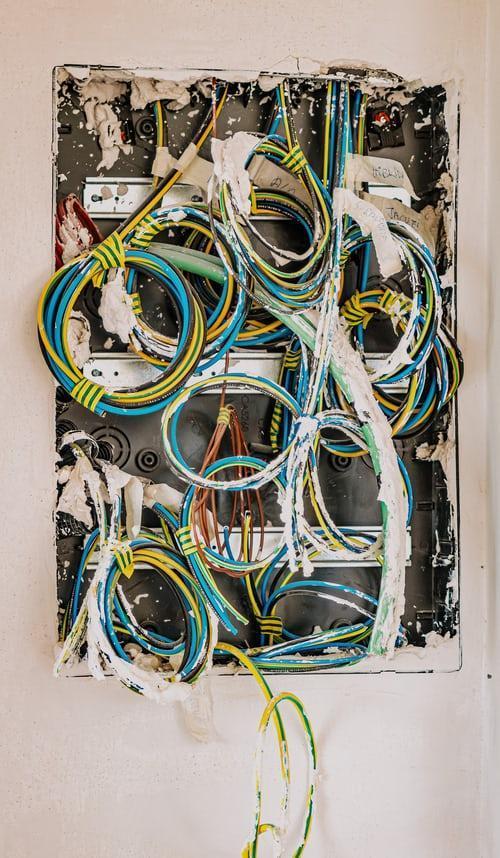
February 23, 2022
Once a company is in operation, it tends to stay in business until an unexpected circumstance forces it to stop. While some of these incidents might only lead to minor issues, others can compromise the integrity of a business’s operations and lead to collapses and closures as a result. Fortunately, most circumstances can be handled simply by carefully setting preparedness plans in place. To that end, here are some ways your business can deal with common emergencies and disasters, and avoid failure in the future:
 Every company needs cash in order to survive, maintain optimal operations, and reach success. But cash flow issues can arise quite unexpectedly, especially when it comes to startups and small businesses, as a number of external factors that are out of an organisation’s control can affect this aspect of the business. For that reason, paying close attention to the incoming and outgoing money is always advised, along with implementing certain procedures that help to improve your cash flow. This could mean negotiating prices, performing credit checks, increasing pricing, or consulting a professional financial advisor, for example.
Every company needs cash in order to survive, maintain optimal operations, and reach success. But cash flow issues can arise quite unexpectedly, especially when it comes to startups and small businesses, as a number of external factors that are out of an organisation’s control can affect this aspect of the business. For that reason, paying close attention to the incoming and outgoing money is always advised, along with implementing certain procedures that help to improve your cash flow. This could mean negotiating prices, performing credit checks, increasing pricing, or consulting a professional financial advisor, for example.
 Theft represents a pervading threat to all businesses, as not even the most secure banks, galleries, museums, and government establishments are immune from skilled intruders. In case of burglary or theft on your premises, it’s necessary to contact the police immediately so an investigation can be started. If you have security cameras, the footage should also be handed to the police, along with a detailed inventory list and all other relevant information. In the future, it might also be wise to upgrade your security system to include tougher door and window locks, an alarm system, motion-activated lighting, and other deterrents.
Theft represents a pervading threat to all businesses, as not even the most secure banks, galleries, museums, and government establishments are immune from skilled intruders. In case of burglary or theft on your premises, it’s necessary to contact the police immediately so an investigation can be started. If you have security cameras, the footage should also be handed to the police, along with a detailed inventory list and all other relevant information. In the future, it might also be wise to upgrade your security system to include tougher door and window locks, an alarm system, motion-activated lighting, and other deterrents.
 Electrical problems are quite a common occurrence. And while minor issues might only disrupt business processes, larger problems could lead to more serious consequences such as equipment failure, accidents and injuries, and even fires. That is why many Australian businesses, for instance, often contact a level 2 electrician from Sydney whenever an issue arises. Such experienced professionals are available 24/7 to take care of any incident, while also offering reliable installation and maintenance services. It would be wise to find a similar expert in your area as well, to ensure each electrical problem can be dealt with appropriately whenever necessary.
Electrical problems are quite a common occurrence. And while minor issues might only disrupt business processes, larger problems could lead to more serious consequences such as equipment failure, accidents and injuries, and even fires. That is why many Australian businesses, for instance, often contact a level 2 electrician from Sydney whenever an issue arises. Such experienced professionals are available 24/7 to take care of any incident, while also offering reliable installation and maintenance services. It would be wise to find a similar expert in your area as well, to ensure each electrical problem can be dealt with appropriately whenever necessary.
 In places such as California, where wildfires are a common threat to establishments, each business has a detailed plan set in place to deal with potential fires. This usually includes a suitable amount of fire extinguishers around the premises, efficient building evacuation plans, contacting local fire stations, and finding ways to keep valuables and essential documents secure. All companies can implement similar procedures for handling fires on the premises, and local fire departments and experts can be contacted for advice on preventing these incidents from happening in the first place.
In places such as California, where wildfires are a common threat to establishments, each business has a detailed plan set in place to deal with potential fires. This usually includes a suitable amount of fire extinguishers around the premises, efficient building evacuation plans, contacting local fire stations, and finding ways to keep valuables and essential documents secure. All companies can implement similar procedures for handling fires on the premises, and local fire departments and experts can be contacted for advice on preventing these incidents from happening in the first place.
 While it might be often overlooked, fraud can come in a number of different forms and affect many businesses. It’s less likely that larger organisations will be defrauded, but smaller companies are particularly vulnerable to fraud through misleading partnerships and poor customer interactions. Internal forms of fraud, however, can impact businesses of all types and sizes. Working only with trusted suppliers and vendors, knowing your consumers, understanding your finances, protecting your business from cyberattacks, and identifying potential areas of vulnerability can all be good methods for protecting your company from fraud.
Unfortunately, it’s impossible to prepare your company for everything, as there will always be some unpredictable circumstances that are beyond your control. However, following the guide above will enable you to deal with the most common disasters and emergencies that might affect your business.
While it might be often overlooked, fraud can come in a number of different forms and affect many businesses. It’s less likely that larger organisations will be defrauded, but smaller companies are particularly vulnerable to fraud through misleading partnerships and poor customer interactions. Internal forms of fraud, however, can impact businesses of all types and sizes. Working only with trusted suppliers and vendors, knowing your consumers, understanding your finances, protecting your business from cyberattacks, and identifying potential areas of vulnerability can all be good methods for protecting your company from fraud.
Unfortunately, it’s impossible to prepare your company for everything, as there will always be some unpredictable circumstances that are beyond your control. However, following the guide above will enable you to deal with the most common disasters and emergencies that might affect your business.
Cash flow issues
 Every company needs cash in order to survive, maintain optimal operations, and reach success. But cash flow issues can arise quite unexpectedly, especially when it comes to startups and small businesses, as a number of external factors that are out of an organisation’s control can affect this aspect of the business. For that reason, paying close attention to the incoming and outgoing money is always advised, along with implementing certain procedures that help to improve your cash flow. This could mean negotiating prices, performing credit checks, increasing pricing, or consulting a professional financial advisor, for example.
Every company needs cash in order to survive, maintain optimal operations, and reach success. But cash flow issues can arise quite unexpectedly, especially when it comes to startups and small businesses, as a number of external factors that are out of an organisation’s control can affect this aspect of the business. For that reason, paying close attention to the incoming and outgoing money is always advised, along with implementing certain procedures that help to improve your cash flow. This could mean negotiating prices, performing credit checks, increasing pricing, or consulting a professional financial advisor, for example.
Theft and burglaries
 Theft represents a pervading threat to all businesses, as not even the most secure banks, galleries, museums, and government establishments are immune from skilled intruders. In case of burglary or theft on your premises, it’s necessary to contact the police immediately so an investigation can be started. If you have security cameras, the footage should also be handed to the police, along with a detailed inventory list and all other relevant information. In the future, it might also be wise to upgrade your security system to include tougher door and window locks, an alarm system, motion-activated lighting, and other deterrents.
Theft represents a pervading threat to all businesses, as not even the most secure banks, galleries, museums, and government establishments are immune from skilled intruders. In case of burglary or theft on your premises, it’s necessary to contact the police immediately so an investigation can be started. If you have security cameras, the footage should also be handed to the police, along with a detailed inventory list and all other relevant information. In the future, it might also be wise to upgrade your security system to include tougher door and window locks, an alarm system, motion-activated lighting, and other deterrents.
Electrical problems
 Electrical problems are quite a common occurrence. And while minor issues might only disrupt business processes, larger problems could lead to more serious consequences such as equipment failure, accidents and injuries, and even fires. That is why many Australian businesses, for instance, often contact a level 2 electrician from Sydney whenever an issue arises. Such experienced professionals are available 24/7 to take care of any incident, while also offering reliable installation and maintenance services. It would be wise to find a similar expert in your area as well, to ensure each electrical problem can be dealt with appropriately whenever necessary.
Electrical problems are quite a common occurrence. And while minor issues might only disrupt business processes, larger problems could lead to more serious consequences such as equipment failure, accidents and injuries, and even fires. That is why many Australian businesses, for instance, often contact a level 2 electrician from Sydney whenever an issue arises. Such experienced professionals are available 24/7 to take care of any incident, while also offering reliable installation and maintenance services. It would be wise to find a similar expert in your area as well, to ensure each electrical problem can be dealt with appropriately whenever necessary.
Fires
 In places such as California, where wildfires are a common threat to establishments, each business has a detailed plan set in place to deal with potential fires. This usually includes a suitable amount of fire extinguishers around the premises, efficient building evacuation plans, contacting local fire stations, and finding ways to keep valuables and essential documents secure. All companies can implement similar procedures for handling fires on the premises, and local fire departments and experts can be contacted for advice on preventing these incidents from happening in the first place.
In places such as California, where wildfires are a common threat to establishments, each business has a detailed plan set in place to deal with potential fires. This usually includes a suitable amount of fire extinguishers around the premises, efficient building evacuation plans, contacting local fire stations, and finding ways to keep valuables and essential documents secure. All companies can implement similar procedures for handling fires on the premises, and local fire departments and experts can be contacted for advice on preventing these incidents from happening in the first place.
Earthquakes
Earthquakes are among the most common natural disasters that affect nearly all corners of the globe, making them an incredibly important emergency situation to focus on. Implementing a procedure in case of earthquakes is always advised, which includes the necessary safety protocols such as the ducking, covering, and holding manoeuvre and not evacuating the building before the ground stops shaking. Using the stairs rather than the elevator, ensuring the gas valves are turned off and sealed properly, and performing a headcount of evacuees are all needed steps as well.Fraud
 While it might be often overlooked, fraud can come in a number of different forms and affect many businesses. It’s less likely that larger organisations will be defrauded, but smaller companies are particularly vulnerable to fraud through misleading partnerships and poor customer interactions. Internal forms of fraud, however, can impact businesses of all types and sizes. Working only with trusted suppliers and vendors, knowing your consumers, understanding your finances, protecting your business from cyberattacks, and identifying potential areas of vulnerability can all be good methods for protecting your company from fraud.
Unfortunately, it’s impossible to prepare your company for everything, as there will always be some unpredictable circumstances that are beyond your control. However, following the guide above will enable you to deal with the most common disasters and emergencies that might affect your business.
While it might be often overlooked, fraud can come in a number of different forms and affect many businesses. It’s less likely that larger organisations will be defrauded, but smaller companies are particularly vulnerable to fraud through misleading partnerships and poor customer interactions. Internal forms of fraud, however, can impact businesses of all types and sizes. Working only with trusted suppliers and vendors, knowing your consumers, understanding your finances, protecting your business from cyberattacks, and identifying potential areas of vulnerability can all be good methods for protecting your company from fraud.
Unfortunately, it’s impossible to prepare your company for everything, as there will always be some unpredictable circumstances that are beyond your control. However, following the guide above will enable you to deal with the most common disasters and emergencies that might affect your business.




